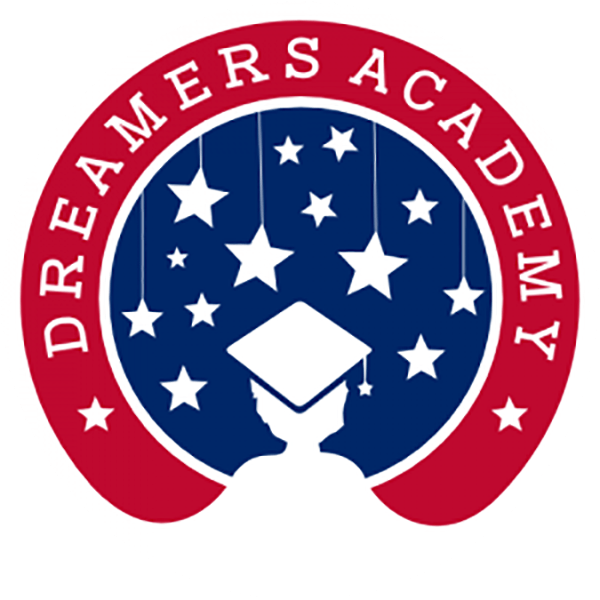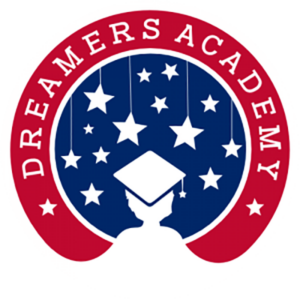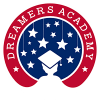Why is Dreamers Academy the best education for my child in Sarasota and Manatee Counties?
When starting in Kindergarten, children achieve at levels similar to or higher than children in traditional programs in standardized tests of reading and math by 5thgrade. In addition, they are able to read and write at grade level in Spanish. This in turn positively affects general academic performance, which not only improves career and college readiness but also enhances job opportunities in the future.
Dreamers Academy develops your child’s full oral, reading and writing proficiency in both English and Spanish. This allows them to see their first language in a comparative perspective, which in turn helps them analyze and refine their language use in their second language.
Children develop a positive attitude toward people who speak other languages with different cultural backgrounds. This promotes an enthusiastic affirmation of themselves as learners. Research shows that dual language education produces students who are comfortable speaking the second language resulting in greater diversity in the friendship choices they make. In a very real sense, students become more self-confident because they are better prepared to engage in an increasingly complex society.
Research: Howard & Christian, 2002, Cazabon, Lambert, & Heise-Baigorria, 2002, Lindholm-Leary, 2001; Thomas & Collier, 2002
Do both native English and native Spanish speakers benefit in dual language programs?
The benefits are the same for all students! Dual language immersion is an enrichment program. One parent commented: “My child has the opportunity to be bilingual, biliterate, and bicultural. There are social and cognitive benefits to bilingualism. He gains a second language, a broader vocabulary, and multiple views of the world.” However, the benefits are more noticeable for English Language Learner as dual language education has been found to be the most successful model for helping these students succeed academically in school (Lindholm-Leary, 2001; Thomas & Collier, 2002). Specific benefits for English Language Learners include an increased sense of pride and self- esteem. At school, they become the models of proficiency for students who are learning their language. At home, they are able to communicate with family members, including grandparents and other members of their communities.
How do students in Spanish immersion programs compare academically to those in typical
English-only programs?
Over the past 30 years, studies have consistently revealed that both native English speakers and English Language Learners (ELLs) make significant progress in both languages. Both groups score at or well above grade level by middle school; and both groups often perform at superior levels compared to same-language peers in the typical English-only programs. On norm-referenced standardized tests of reading and math achievement in English, native English speakers outscored their peers in English-only classrooms. English Language Learners who mastered English in dual language programs scored significantly higher than their English Language Learning peers in traditional monolingual programs. Surprisingly, ELLs performed on par with native English-speaking students from English-only classrooms.
Research: Cazabon, Nicoladis, & Lambert, 1998; Collier & Thomas, 2004; Howard, Sugarman & Christian, 2003; Kirk-Senesac, 2002; Lindholm-Leary, 2001, 2005
What does success look like in a dual language program?
According to surveyed parents and educators, children in dual language programs enjoy learning and interacting with people from different linguistic and cultural backgrounds. They typically have parents who understand and value dual language education. Although learning in two languages can be rigorous at times, especially for children from a monolingual household, students quickly adapt and learn to take risks in speaking and writing the second language.
Research shows that children from any background are successful in dual language programs (Howard, Sugarman, & Christian, 2003). Students from different ethnic, social, economic, and language households—with varying academic strengths and needs—all benefit from dual language education. Students have more positive inter-ethnic relations, hold other cultures in higher regard, and have more positive views of diversity (Genessee & Gándara, 1998).
How can I help my child do homework in Spanish if I don’t know the language?
Parents can support students at home by making sure that they have the right environment and tools to get homework done (e.g., a quiet space and enough time, paper, dictionaries in both languages, writing utensils, and art supplies such as construction paper, paste, tape, and colored markers). Parents can also ask questions about the homework in the language spoken at home, thus giving the students opportunities to explain the assignment in their first language. Throughout the year, teachers and staff will provide a variety of information and resources to parents to support their children’s academic and socio-emotional development in school.
What kind of homework support does the program provide?
Dreamers Academy instructional leaders and staff are fully aware that some parents are not conversant in the language of instruction and may be anxious about their ability to support their child academically. Our teachers and staff are trained to help all parents in guiding their children for academic success in our dual language program. Ongoing communication between teachers and parents through weekly updates to classroom websites and the preferred messaging system chosen by individual parents will describe the topics that are being taught and provide an overview of homework assignments for the week, along with written guidance for complicated work. The after-school homework club will provide students assistance on a daily basis. A homework helpdesk and hotline in both English and Spanish will manage requests throughout the school year as well.
How can I learn more about Dreamers Academy’s dual language immersion program?
We are enthusiastic advocates for your children, and would love to get to know you and your family. We are at your service to answer any questions or meet with you. Please look for informational session dates throughout the year and join us for a lively conversation.
Dreamers Academy staff attends several conferences throughout the year, including La Cosecha (The Harvest) in New Mexico, now in its 24thyear. We welcome interested parents and volunteers to join us!
There are many resources for parents on two-way immersion education. The newly formed Florida Association of Bilingual Education is now accepting membership applications. Multiple conferences provide opportunities for parents to network with bilingual educators and other dual language immersion parents. Resources include books (see the annotated bibliography) and videos from organizations and from other dual language immersion programs. Dual language videos are available through the Center for Applied Linguistics (CAL).
There are also online directories of dual language programs. In Florida, Dr. Maria Coady of University of Florida is assembling a list of Florida dual language programs which will be available later this year (2019). CAL has an online directory of TWI programs in the United States, the California Department of Education has a directory of all the two-way bilingual immersion programs in California, and the Texas Two-Way/Dual Language Consortium has an online directory of programs in that state.
Following is a partial list of organizations with a special interest in dual language education: The Center for Applied Linguistics (CAL), the National Association for Bilingual Education (NABE), 2-Way CABE (California Association for Bilingual Education), Dual Language Education of New Mexico, and the Illinois Resource Center.
Some of these organizations host conferences that cover dual language education, and this information is provided on their websites. The OELA Newsline of the National Clearinghouse for English Language Acquisition also has a section for parents of bilingual children (to subscribe, go to http://www.ncela.gwu.edu/enews/subscribe.htm)
Adapted from Center For Applied Linguistics







